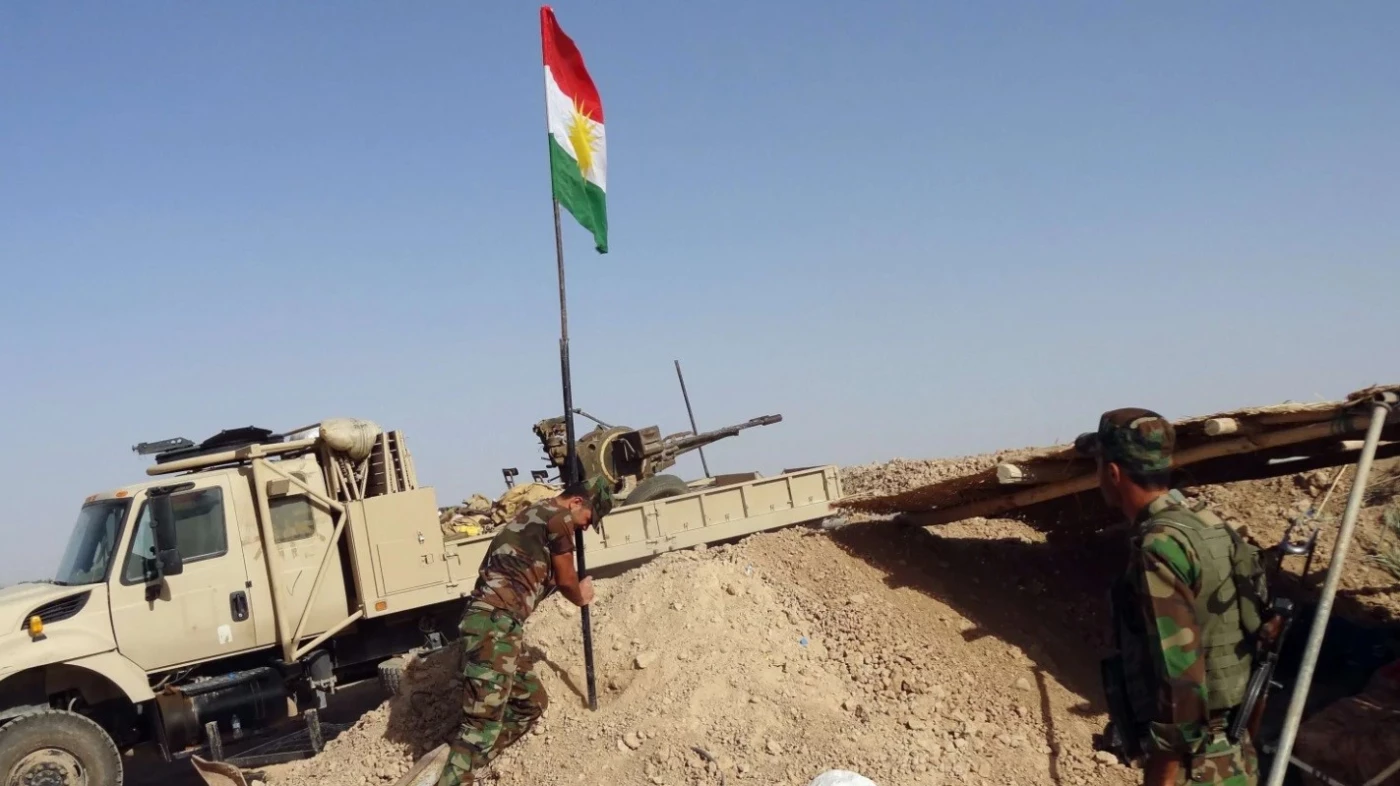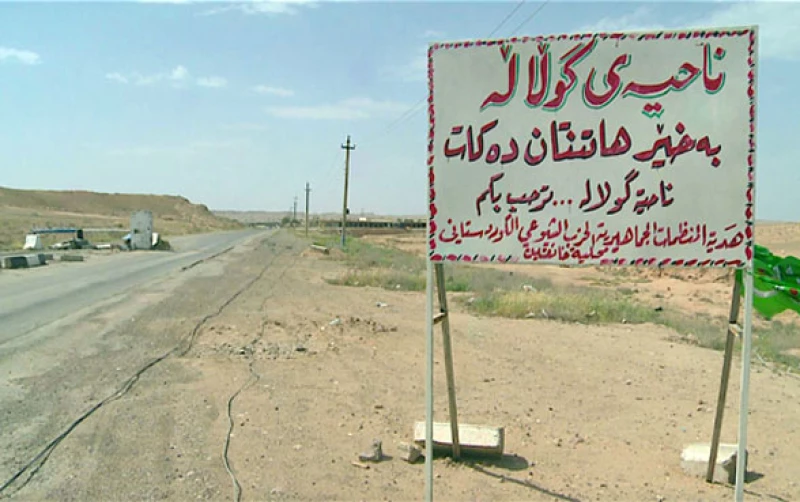ERBIL, Kurdistan Region of Iraq - The national security advisor of Iraq says arms delivery to Kurdish Peshmerga forces is not chancy, describing comments from a key Sunni politician who lashed out at the move merely as “politically motivated.”
“The Peshmerga is a segment of the security institutions of Iraq, and the Iraqi defense ministry has already published a clarification on this matter, and I guess there was no need to make a big deal out of this subject,” Qasim al-Araji, Iraq’s National Security Advisor said on Sunday night during an interview with Al Rabiaa TV, which is close to Shiie Popular Mobilization Forces (PMF).
In August, the US delivered a batch of military aid containing American howitzer artillery to the Peshmerga, executing details of an agreement previously signed between Erbil and Baghdad with the US.
In mid-September, former speaker Mohammed al-Halbousi protested the move, arguing the handover of the heavy weapon would destabilize the country and pave the way for domestic conflicts in disputed areas, namely Kirkuk and Nineveh provinces, claimed by both Erbil and Baghdad.
Halbousi viewed the arms delivery “uncosntituoinal” and argued it would fuel internal conflict, especially in the disputed areas.
Qais al-Khazali, secretary general of the Iran-backed Asaib Ahl al-Haq (AAH) echoed Halbousi’s sentiment, arguing the artillery would have to be returned to Baghdad, calling the move “a mistake” and asked the Iraqi government to “correct” it.
AAH is a US-designated terrorist organization due to its deep alliance with Iran and their involvement in attacking US personnel in Iraq on multiple occasions.
Days after the inflammatory comments, the Iraqi government said the US shipment of the artillery to the Peshmerga was to implement an agreement that had previously been signed between Erbil and Baghdad.
The Peshmerga are “a national force,” the Iraqi defense ministry said in a statement, adding the Kurdish forces’ “loyalty to Iraq is unquestionable.”
While addressing his party's supporters on September 25 during an event to introduce their candidates for the Kurdistan Region’s October 20 parliamentary elections, Masoud Barzani, president of the Kurdistan Democratic Party (KDP) slammed those Iraqi leaders who voiced worry over arms delivery to the Peshmerga as “chauvenists”.
“My answer for them is as follows; the Peshmerga is a tree that has been watered with the blood of martyrs and tears of the mothers of martyrs. The name and duty of the Peshmerga is very sacred to us,” Barzani said at the time.
According to the Iraqi Constitution, Kurdish Peshmerga are part of the national defense system of Iraq and they are entitled to enjoy similar privileges as that of other Iraqi forces in other parts of the country.
In parts of speech, the national security advisor of Iraq added that Kurdish Peshmerga forces are a “supporting” force that is committed to protecting the security and stability of the country.
“There is no problem with arming Peshmerga forces, like how there are no problems with arming Hashd al-Shaabi and the counter-terror forces,” Al-Aarji added. “They are all supporting forces. None of the forces would point their guns at each other.”
He added no sides should “worry” about the Peshmerga.
“I am sure that the Peshmerga will not use their weapons against any sides, because there are intelligent statesmen in Kurdistan who work for the unity of the country,” he said.
Kurdish Peshmerga forces played a pivotal role in shattering the myth of ISIS, decisively contributing to the lasting defeat of the extremist group in 2017, three years after they occupied a significant swathe of territory.
The Iraqi army and Peshmerga forces currently have joint forces to secure a security vacuum in the disputed territories.
Seven years into the territorial defeat of ISIS, the Peshmerga and Iraqi armed forces routinely carry out joint operations to eliminate the group’s remnants.



 Facebook
Facebook
 LinkedIn
LinkedIn
 Telegram
Telegram
 X
X


